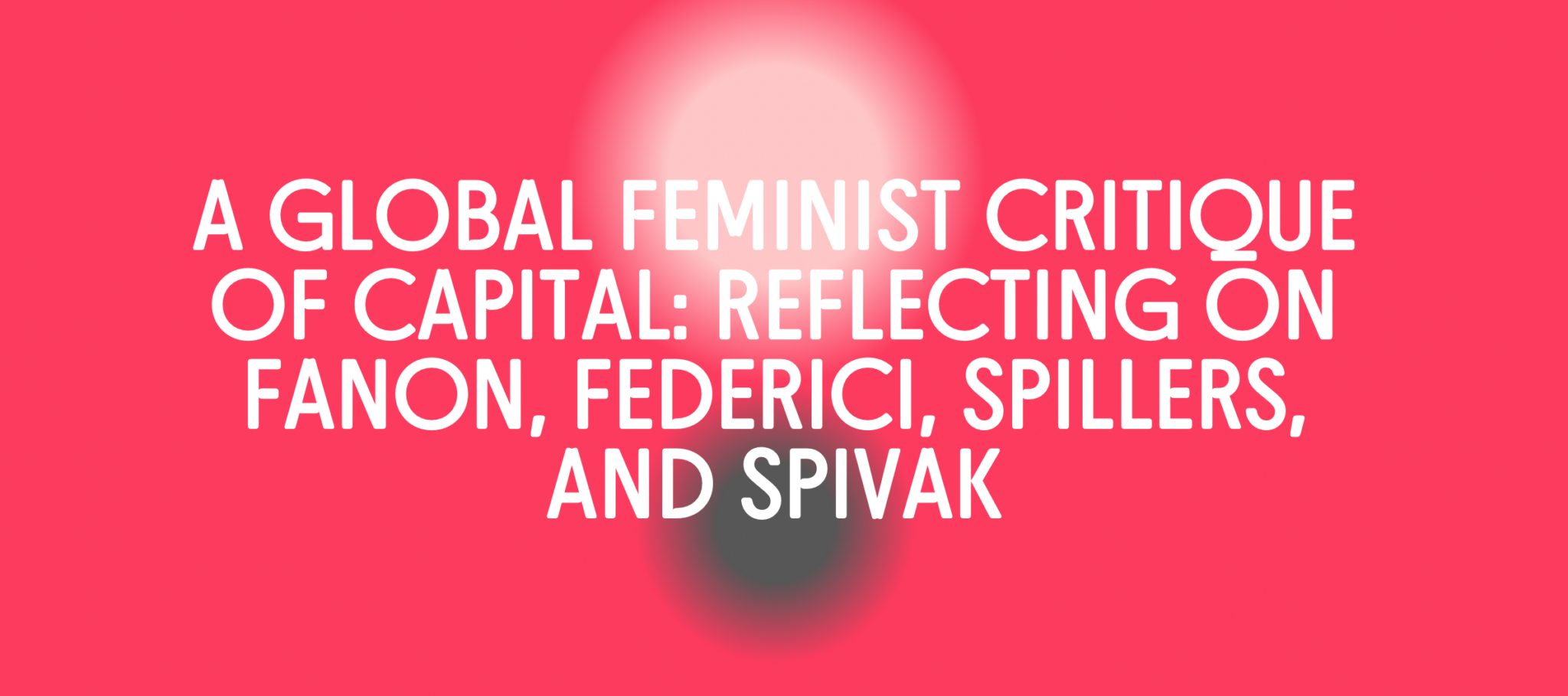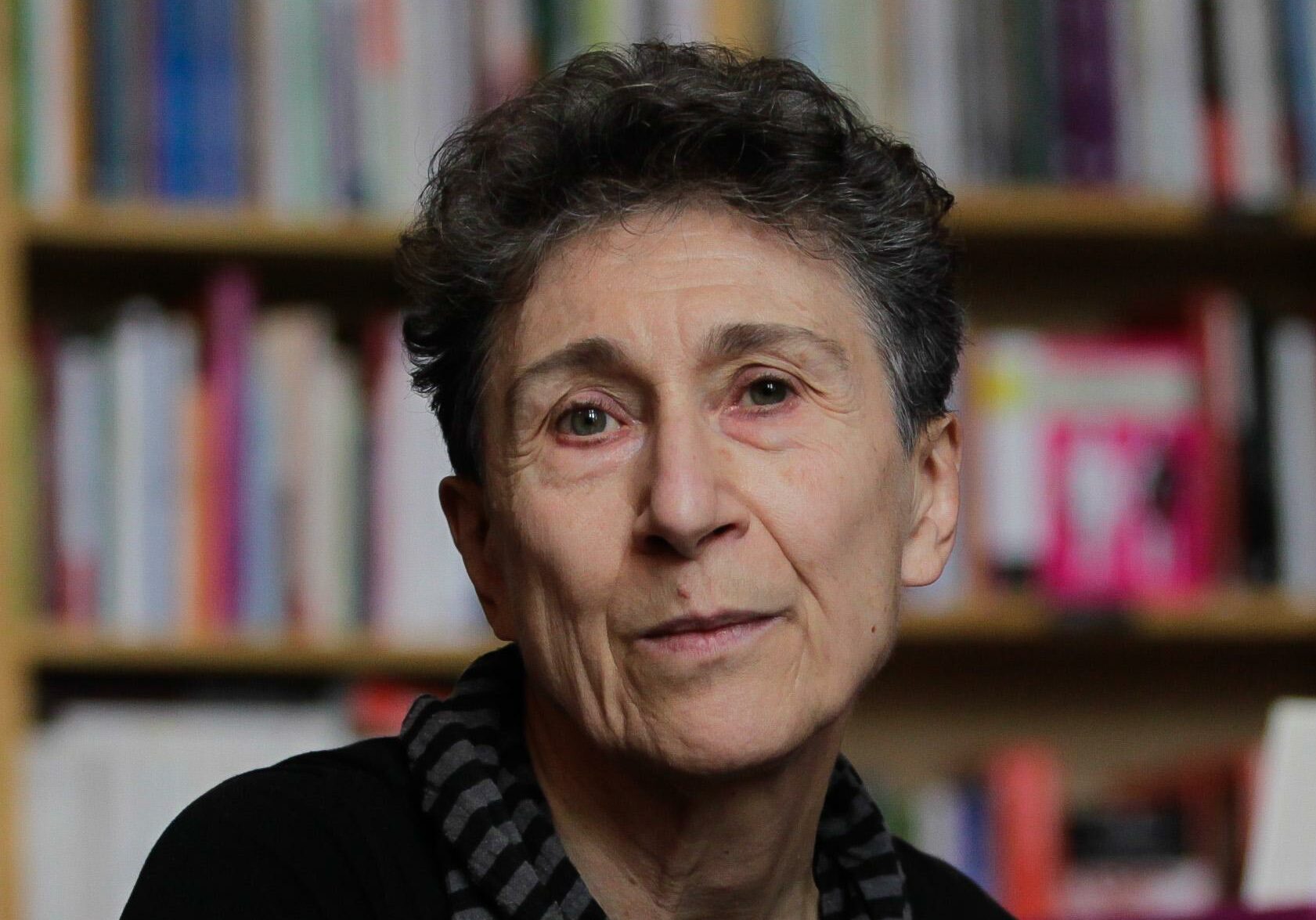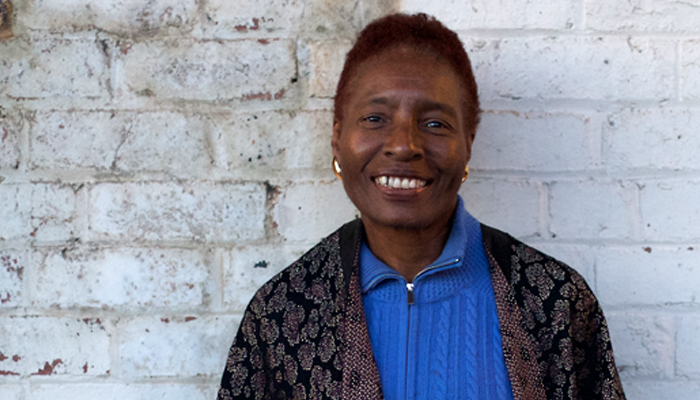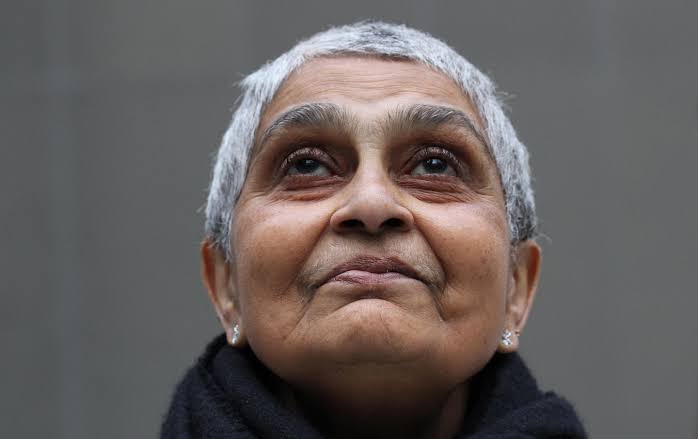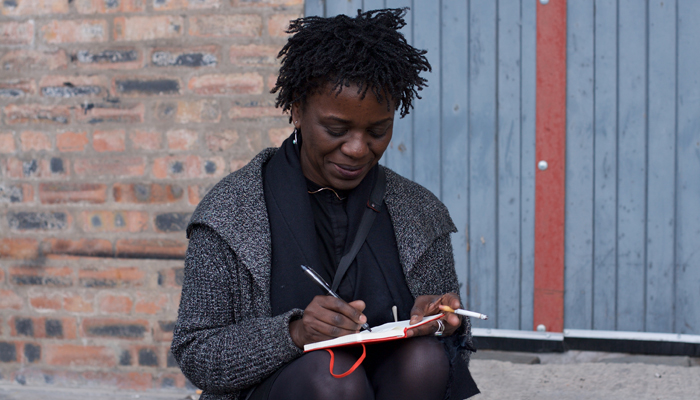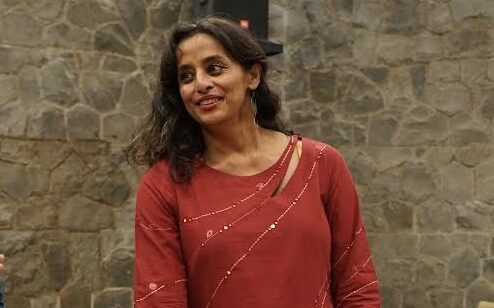A Global Feminist Critique of Capital: Reflecting on Fanon, Federici, Spillers, and Spivak
A Global Feminist Critique of Capital: Reflecting on Fanon, Federici, Spillers, and Spivak
Since the global economic crisis of 2008, the trajectory of capitalism has been transformed by a series of political, economic, environmental, and humanitarian crises, signaling the need for developing critical tools and strategies that bring the analysis of colonial, racial, and cisheteropatriarchal subjugation to the center of the critique of global capital.
The objective of this two-day workshop is to set up a conversation that will provide the elements for a consideration and assembling of a global feminist critique of capital. Toward doing so, it brings together scholars in postcolonial studies, black studies, and political economy to engage in discussion of a framework and approach to the critique of global capitalism that addresses these crises, through reflection on the analysis of colonial and racial violence advanced by the anticolonial political philosopher Frantz Fanon and by three leading contemporary feminist theorists: political theorist Silvia Federici, black critical theorist Hortense Spillers, and postcolonial literary theorist Gayatri C. Spivak.
We are beyond excited to be collaborating on this event, emerging out of our ongoing entanglements with Denise and Hortense, ever since Denise first came to Episode 6: Make a Way Out of No Way back in 2014 (!?), and she and Hortense chatted at Episode 7: We Can’t Live Without Our Lives in the Standing in the Flesh discussion the following year.
Keynote Conversation – In Person & Live-streamed
Thursday March 28 | 5-7pm EST+1 (9-11pm GMT)
Silvia Federici (introduction by Juliana Bidadanure), Hortense Spillers (introduction by Fred Moten), and Gayatri C. Spivak (introduction by Vasuki Nesiah), moderated by Denise Ferreira da Silva and Paula Chakravartty. The March 28 Keynote will be livestreamed for those not attending in person – please sign up for this via this Google Form.
Workshop by Invitation
Friday March 29 | 10am-5pm EST
Three panels with a group of leading international scholars, activists, and artists on the topics of debt, reparations, and rebelry.
Visitor Info
Performance Space Access
Performance Space New York is dedicated to creating an accessible environment for all. If you’d like to come, but something makes that difficult for you, or if you have questions about the events, the venue, have particular seating needs, or would like to tell us about your access needs, we would love to hear from you. Please don’t hesitate to contact Performance Space New Yorks’ Audience Services at boxoffice@performancespacenewyork.org.
Entrance
Performance Space New York is ADA compliant with a no step entry. We have level access from the sidewalk and an elevator that leads to the fourth floor spaces.
Restrooms
Public restrooms are located on the same floor as the performance spaces and are multi stall, gender neutral, and wheelchair accessible with handrails on the left side.
Assisted Audio Listening Devices
Assisted Listening Devices are available on the ground floor at the Box Office.
Service Animals
Service Animals are gladly welcomed.
Access Statement from CRACS Co-Lab
NYU provides reasonable accommodations to people with disabilities. Please submit your request for accommodations for events and services at least two weeks before the date of your accommodation need. Although we can’t guarantee accommodation requests received less than two weeks before the event, you should still contact us and we will do our best to meet your accommodation need. Please email CRACS Co-Lab for assistance on cracscolab@gmail.com.
Credits
Presented by CRACS Co-Lab with Co-sponsors: NYU Department of Spanish & Portuguese, NYU Department of Media, Culture, and Communication, Arika, NYU Center for the Humanities, NYU Gallatin, NYU Asian/Pacific/American Institute, Hemispheric Institute, Northwestern University Latina & Latino Studies Program, International Consortium of Critical Theory at UC Berkeley, and the Edmund W. Gordon Institute for Urban and Minority Education at Columbia University. Hosted by Performance Space New York.
